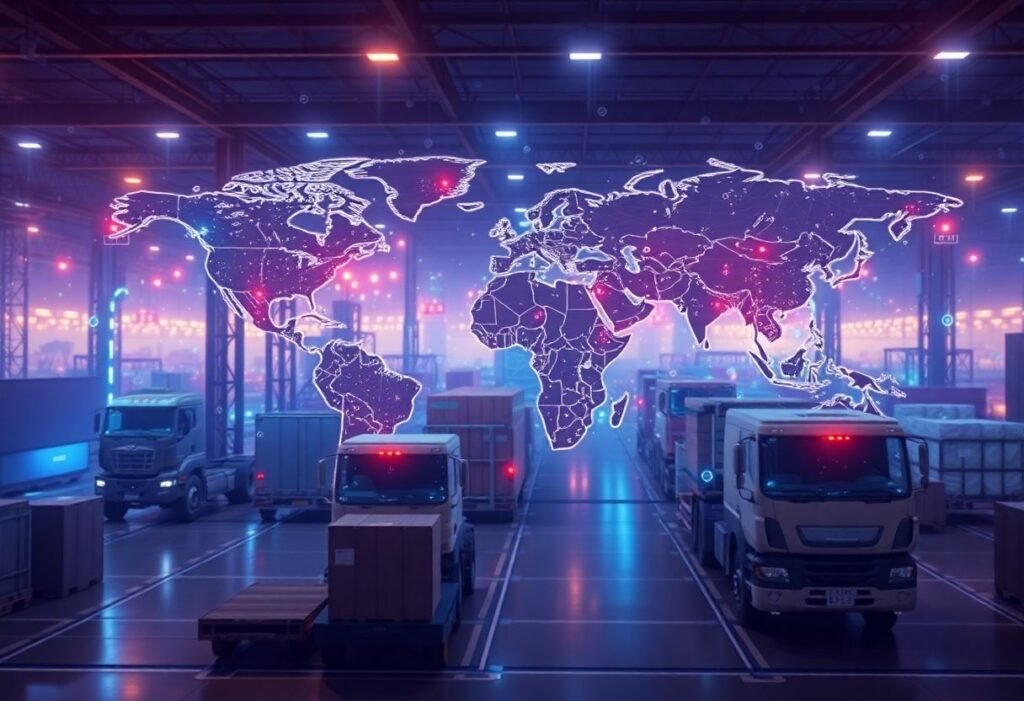The future of Internet of Things (IoT) in global supply chains represents an exhilarating evolution driven by innovation. As industries become more interconnected, utilizing IoT technologies will enhance operational efficiency and effectiveness.
Transforming Supply Chains through Smart Technology
The integration of smart technology into global supply chains provides unprecedented opportunities for innovation. IoT devices can monitor and analyze processes in real-time, contributing to significant efficiency gains. For instance, embedded sensors in logistics can track shipments’ locations and conditions, allowing for proactive handling of potential issues. Companies can reduce waste and minimize costs by leveraging such data-driven insights, fundamentally reshaping the traditional supply chain model.
Enhancing Visibility and Transparency
One of the primary benefits of IoT in supply chains is enhanced visibility and transparency. When all components of the supply chain are interconnected, stakeholders can monitor everything from inventory levels to shipment progress. This interconnectedness fosters trust between parties and allows for better decision-making based on comprehensive data. Businesses that adopt IoT can ensure that their partners and customers are updated in real time, enhancing the overall customer experience.
Predictive Analytics and Demand Forecasting
With IoT data integration, businesses can employ predictive analytics to anticipate market demand more accurately. IoT devices gather vast amounts of data from various sources, enabling organizations to analyze patterns and trends. By understanding customer preferences and behavior, companies can adjust their supply chain factors accordingly, reducing excess inventory and improving product availability. This approach not only enhances customer satisfaction but also optimizes profitability.
Improving Operational Efficiency
IoT technologies can streamline operations, leading to enhanced operational efficiency throughout the supply chain process. Automation and machine-to-machine communication reduce manual tasks, minimizing human error and accelerating processes. Companies that implement IoT in their operations can respond quickly to changing demands, ensuring they remain competitive in a rapidly evolving marketplace. This agility is crucial for businesses aiming to thrive in a complex global environment.
Sustainability and Environmental Impact
As companies face increasing pressure to adopt sustainable practices, IoT can play a vital role in minimizing environmental impacts. With sustainable supply chain practices, organizations can utilize IoT to monitor resource consumption and waste generation closely. This data allows for more efficient use of resources and identification of areas for improvement. Companies that embrace IoT solutions can significantly reduce their carbon footprint while meeting consumers’ expectations for environmental accountability.
Challenges and Considerations
Despite the vast potential of IoT in global supply chains, several challenges must be addressed. Security remains a major concern as the interconnected nature of devices can expose organizations to cyber threats. Furthermore, companies must focus on integrating new IoT systems into existing infrastructures without disrupting operations. By addressing these challenges strategically, businesses can unlock the full potential of IoT-driven innovation while ensuring their supply chains remain secure and efficient.
Disclaimer: The content provided in this article is for informational purposes only and does not constitute expert advice.





















